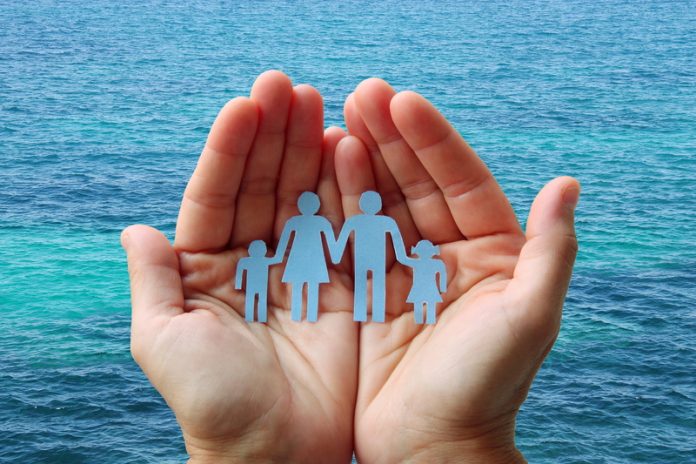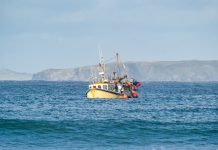The European Union has high hopes for the marine and maritime economy, but, for the blue economy’s potential to be developed, we need more cooperation between the public and private sectors, argues Adam Banaszak of the European Committee of the Regions
I was nominated by my fellow local politicians to prepare a position paper (an ‘opinion’) of the Committee of the Regions (CoR) on the subject of innovation in the ‘blue’ – marine and maritime – economy. It has been an honour to draft the CoR’s position on such an important subject, and how innovation can help unleash the potential of our seas and oceans and help create millions of jobs. This document was prepared at the request of the European Commission by the CoR, an EU assembly of local and regional authorities that brings together 350 local politicians from across the EU to advise the EU institutions in the legislative process. We aim to ensure that EU institutions heed local governments’ experience of what works and what does not. After all, the vast majority of the legislation adopted by the EU (an estimated 70%) has an impact on people’s lives at the local level.
Why, more specifically, is Committee of the Regions interested in the ‘blue economy’?
EU data suggest that the ‘blue economy’ already includes roughly 5.4 million jobs and generates a gross added value of almost £370bn a year to our economies. The European Commission has already prepared a long-term ‘blue growth’ strategy aimed at fostering sustainable growth across the maritime sector, making our seas and ocean an even greater contributor to the EU’s economy. It is the weight of the sector and its potential that makes it so important to our local economies.
The CoR believes the development of the ‘blue economy’ is an excellent way to boost local economies and to create high-quality jobs in knowledge-based and investment-heavy sectors. This is also a personal conviction of mine. Significantly, the development of the blue economy would also provide local governments with data on the state of our seas and ocean. There is also potential here for the private sector, including small and medium-sized businesses, to collaborate with the public sector. As I argued in my opinion, which was adopted by the CoR members last December, the wealth of the sea has the potential to drive economic development far inland. With good rail, road and river infrastructure, goods can be transported swiftly and cheaply inland. While ships are and will remain, the cheapest form of long-distance freight transport, my own region of Poland (Kujawsko-Pomorskie) is a good example of how far the ‘blue economy’ can reach. Its capital, Toruń, lies 150 kilometres from the sea, but distance has not prevented the city from becoming home to a very large manufacturer of marine equipment, which supplies shipyards in Poland, Germany, Korea and China. A good highway means that it is possible to reach the coast from Toruń as quickly as it takes to get from one end of a clogged seaside city to another in high season.
Transport and shipbuilding are just 2 sectors with potential. Others include tourism, ocean-energy technologies (such as tidal energy and wind farms), and new technologies (such as medicines) and – I place these last because they are environmentally sensitive – extractive businesses such as fisheries, aquaculture and seabed mining. The potential is huge. If that potential is to be harnessed, national authorities, local government and business will need to cooperate.
While regional development programmes can help, local governments typically lack the resources to carry through projects by themselves. Public-private partnerships (PPP) in well-defined areas can help meet these financing needs. PPPs also act as a form of guarantee that an investment will be effective and innovative.
Unfortunately, there are still too few of these types of joint projects in the ‘blue economy’. There are, though, some good examples, including applications for protected marine areas, navigation, and logistics in ports.
Members of the CoR fully accepted my proposals for PPPs. They also backed my demand for small and medium-sized enterprises to have better access to public data. PPPs in the blue economy should not be formed solely with large private companies, as is largely the case now. SMEs account for the vast majority of businesses across the EU.
As always, the issue of genetically modified organisms became a subject of debate. I argued against allowing marine products to be genetically modified. The CoR agreed, concluding that the economic potential of the blue economy is already so great that there is no reason to intensify production in a way that poses risks to quality.
Overall, it is clear that we still use only a fraction of what our seas and ocean can offer us. This contrasts with the situation on-shore, where land is already over-exploited. The blue economy offers the potential for growth, whether this is measured in jobs, income or innovation. Local governments across the EU are keen to make the most of that potential. There is now demand to make fuller use of a key element – water – that is seemingly foreign to us, but which we should manage and protect.
Adam Banaszak is the vice-president of the Kujawsko-Pomorskie regional assembly in Poland. He is the Committee of the Regions’ natural-resources (NAT) Commission coordinator for the European Conservatives and Reformists, a political group to which the British Conservatives are aligned.
Adam Banaszak
Natural-Resources (NAT) Commission Coordinator for the European Conservatives and Reformists
Organisation name: Committee of the Regions’ (CoR)











